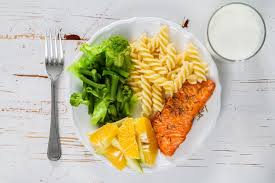The role of raw
red meat in a healthy diet
Raw red meat, when consumed in moderation, can be an important part of a balanced diet. It is rich in essential nutrients and offers a variety of health benefits that contribute to overall well-being.
What is raw red meat?
Nutritional Benefits of Raw
Red Meat Rich
Source of Protein:
Raw red meat is an excellent source of
high-quality protein, which is essential for
muscle growth, repair,
and whole-body function.
Essential Vitamins and Minerals:
It contains high amounts
of vitamins and
minerals, especially vitamin B12,
iron, zinc, and
selenium. These supplements are fundamental for energy
creation, safe capability, and keeping up with sound platelets.
Healthy Fats:
Raw red meat contains fat, but the type of fat present varies.
It has
a balance of saturated and unsaturated
fats, which are
necessary for hormone
production and cellular
health.
How to Incorporate Raw Red Meat into Your Diet
Portion Control:
Aim for
moderate portions, usually around 85-110g per
serving. This ensures you get the benefits without overeating.
Balancing with Other Foods:
Combine raw red meat with a variety of vegetables, whole
grains and healthy fats to create a balanced meal.
How to Cook:
Opt for
healthier cooking methods
like grilling, roasting or
broiling to maintain
the nutritional value
of meat while
minimizing your intake
of unhealthy fats.
Understanding Processed Red Meat:
Harms and Benefits Processed red meats, such
as sausages, hot
dogs, bacon, and
deli meats, are meats that
have been preserved by smoking,
curing, salting, or
the addition of
chemical preservatives. Processed meats are convenient and delicious, but they pose potential
health risks.
Health Risks of Processed Red Meat
Increased Cancer Risk:
Regular consumption of processed red meat has been associated with an increased risk of colon cancer. The preservatives
and additives used
in processing may
contribute to this
increased risk.
High Sodium Content:
Processed meats often contain high levels
of sodium, which
may be linked to an
increased risk of hypertension (high blood
pressure) and heart
disease. Saturated fats and additives: Processed meats usually contain
high levels of unhealthy
saturated fats and
additives that, when consumed in excess, can contribute to heart disease and other chronic conditions.
Are there any benefits?
Convenience:
Processed meats are often ready
to eat and require minimal
preparation, making them
a good choice for a
quick meal or
snack.
Taste:
The aging
and smoking process enhances the
meat's flavor, making it popular with many.
Types of red meat and their benefits
Beef:
Convenience:
High in protein, iron and vitamin B12, beef is a versatile choice that can
be used in a variety of dishes. To lessen fat
admission, pick lean meats like sirloin and tenderloin. Sheep: Sheep has a
somewhat higher fat substance than meat and is a decent wellspring of omega-3
unsaturated fats, particularly when grass-took care of. Enjoy
lamb in moderation
as part of a balanced diet.
Pork:
If you choose cuts such as loin or tenderloin, pork is a lean meat choice. It is rich in thiamine, which is important
for energy metabolism.
Timing and frequency of
red meat consumption
Moderation is key. Limit
your red meat intake to
1-2 times per
week. This frequency
allows you to
enjoy the benefits
without increasing health
risks.
Meal timing:
Eat red meat as
part of your lunch
or dinner, along with
vegetables and whole
grains. This will ensure you
get the nutrients
you need for the day and also aid digestion.
Balance with plant-based foods:
On days
when you don't eat red meat, incorporate more plant-based foods into your diet to ensure a varied and nutritious
diet. Conclusion: Find a Healthy Balance Unprocessed
red meat can be a valuable part of your diet, providing important nutrients
that support good
health. However, it is important
to consume it
in moderation and
in balance with other food groups. Processed
red meat, although convenient,
carries health risks and should be consumed in moderation. Understanding the
differences between these
meats and making
informed choices can help
you reap the benefits
while minimizing potential
harm.














0 Comments
Thanks For Reaching Us!!!